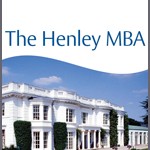Ever heard the phrase “lifelong learning”? By whatever means you never stop learning, formally or by any other means, but it still amazes me how reluctant people are to invest in their own futures. In my case I ran my own company and was only as good as the last client role I sold myself into, but for those with the relative comfort and security of an open-ended “permanent” job (I dispute that there is any such thing), it’s easy to assume you will stay there for the foreseeable and therefore don’t need to continue learning – even if your organisation is prepared to fund that training. Looking at it the other way, it’s important to stay motivated, update your skills and find new ways to be saleable within your employment, or potentially in the world beyond the current job market – especially if, like me, you’re not in the first flush of youth.
Partly it’s related to a phobia of learning, since people associate education with being at school. A bad comparison: our rates of learning and development are all different; some thrive at school, while others who may be every bit as intelligent go through a rebellious phase and don’t achieve their potential. Worse than that, they may accept jobs well below their capability and spend a career struggling to catch up (don’t believe the myth that anyone good enough automatically rises through the ranks – some of the brightest people I’ve ever come across have been doing comparatively demeaning job roles.) We may have a jaundiced view of formal learning as a result of that, even though it can be the most incredibly wonderful experience and act as a springboard to second careers and a range of opportunities.
It had been some considerable while away from education when I joined what was then called Henley Management College to do my MBA. Master of Business Administration – a masters degree in management that at one time acquired an almost mythical status but in essence contains a marriage of theoretical and practical advice on tools, techniques and methods for diagnosing business issues, correcting them, planning for and delivering success. I had reached a point in my career when boosting my profile required a significant boost in my learning, so at the age of 40 I undertook more learning.
At least I did it primary for the practical skills gained, not to mention the networking opportunities and ideas available at this hotbed of business innovation. Sure there were some of my colleagues who went there (a) because they were sponsored (I funded my own degree), (b) to get the letters MBA after their name, and (c) because it led to the promise of greater status and salary in future. Quite sure most people see it as career-enhancing, though there is far more to mature learning than just that.
I chose Henley above a range of other options. The typical choice for returning to education is the Open University. I would not want to criticise the OU since it undoubtedly does fine work in enabling students to blossom and often to forge second careers at a time when many other people might think of taking life easier. I attended a few meetings at Cambridge to learn more about the OU. Don’t think the chap there did a great job of selling it, so I came away feeling that it lost the extent team power and mutually reinforced learning of syndicate groups with Henley and others, did not appear to have the breadth of syllabus or options, and relied rather heavily on multiple choice questions in exams in preference to the case studies employed by Henley and others (I detest multiple choice questions with a passion!!)
Henley had four factors going for it, as I later stated in my alumnus profile:
Henley’s programme seemed more rounded and focused on the development of strategic thinking; because the Flexible Evening programme fitted well with my working life; the international study trip; and because I was sold on the Henley premises and its staff from my very first visit!
There’s no doubt that the Greenlands premises and grounds is hugely impressive, but even if it had been a hovel the other factors were more than tempting. The organisation of FEMBA so I could do two evening classes a week in London, then occasional weekends at Henley fitted perfectly, not least the fact that you could also access many online resources at home.
So far so good, but sitting in the lecture theatre for the first time surrounded by around 100 high achievers was daunting. As it turns out, I had nothing to fear – my experience was every bit as relevant and valid as theirs and they proved no more or less incisive, intelligent and/or effective, so confidence grew rapidly – particularly when I found myself enjoying studies, working ahead of schedule and handing in assignments for good marks when others were struggling to complete in time.
More than that, we had to complete a battery of psychometric tests which apart from any other purpose were used to assign compatible syndicate groups so team roles gelled. My group did, though I did hear of one group that needed arbitration, having reached the point of forming two factions who were not speaking to one another!!
It’s to my regret that we seem by and large to have lost touch these days. At the time we got incredibly close – worked long hours together on joint presentations, got together at various locations to debate subjects, had the airwaves humming with a constant stream of emails, and played hard too – nights out drinking and having fun, as it should be. Much of the fun was in the International Study Week, though we did also work and do many other things there (see here for the discussion of my trip to the Western Cape.)
At the end though, the assignments, the research, the reading and the dissertation you did alone. Even the exams, though as a syndicate group we debated them together – and on the day you got the questions. That’s all part of the discipline required of a master’s degree. At times it was very hard, particularly since we were all working full-time and mostly had families too.
But we got there, so we were presented with our awards and my framed MBA certificate now stands proudly in my living room. But the certificate means nothing on its own, other than as evidence I can work hard and achieve to Masters Degree standard. The key benefits are the tools, techniques and confidence I can apply to clients, and the networking opportunities resulting from being part of a vast and highly achieving alumni database at Henley. An MBA is for life, not just for Christmas, but you don’t have to do an MBA, or even a bachelor degree – there are thousands of options out there, just go look for the one that suits you!
Bottom line is that, even for those people who think they would be lousy at it, would find it tough to complete the work in the face of their incredibly busy lives, and simply feel daunted or intimidated by the prospect, education in advanced years is a tremendously liberating experience, opens up avenues you had never dreamed of, and gives you confidence that you CAN do anything you put your mind to, with a bit of organisation.
Credit to the OU, Henley and other establishments for understanding the difficulties and designing courses flexibly to fit around your other responsibilities. The only things you have to provide are motivation, energy and discipline – and as the cliche has it, you get out what you put in. If you’re thinking about it but wavering, my advice is to go for it – push yourself and you will be astonished what you are capable of achieving!!








You should get a job promoting courses! You have presented a very well thought out argument and one I’d love to say had persuaded me to engage in further training. However, taking the CIPD stressed me so much it will take a lot to convince me to try again. Admittedly when I studied I was a single parent of two teenagers, working full time and had a major op in the middle of it so perhaps there were other contributing factors!!!!
You are capable of far greater things than you ever give yourself credit for. Why not try doing a course just because you’ve always wanted to learn about a given subject, regardless of its career potential? The thirst for knowledge can never be quenched once it’s in your bloodstream!!